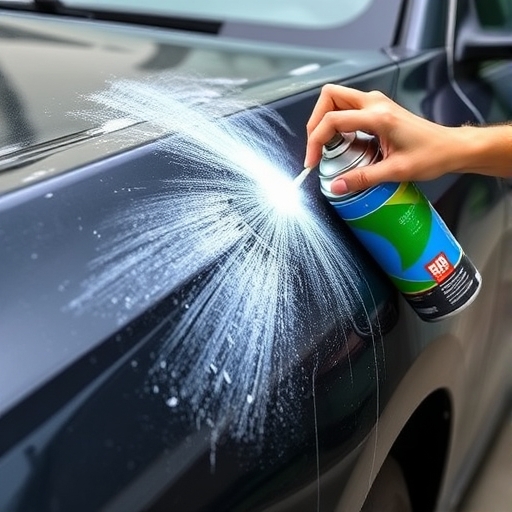How to Remove Spray Paint From Car
Removing spray paint from your car can seem like a daunting task, especially if you’re worried about damaging the original paint job. However, with the right techniques and materials, you can restore your vehicle’s appearance without professional help. In this article, we will explore various methods for removing spray paint from cars, as well as tips for preventing damage to the underlying paint.
Understanding the Problem
Before diving into the removal methods, it’s essential to understand why spray paint adheres so strongly to car surfaces. Spray paint is designed to bond quickly and effectively to various materials, including metal, plastic, and glass. This strong adhesion can make it challenging to remove without damaging the original paint.
Factors to Consider
- Type of Paint: Different spray paints have varying compositions, which can affect removal methods.
- Duration of Exposure: The longer the spray paint sits on the car, the harder it becomes to remove.
- Surface Condition: A smooth, well-maintained surface will be easier to clean than one with existing scratches or damage.
- Protective Gear: Gloves, goggles, and a mask to protect against chemicals and debris.
- Automotive Clay Bar: Useful for removing contaminants from the surface.
- Paint Thinner or Solvent: Such as acetone or mineral spirits.
- Rubbing Alcohol: Effective for gentle removal.
- Microfiber Cloths: For applying products and wiping off paint.
- Plastic Scraper or Credit Card: To gently scrape off paint without scratching.
- Car Wax or Sealant: To protect the car’s surface after removal.
- Act Quickly: The sooner you can address the spray paint, the easier it will be to remove.
- Avoid Abrasives: Never use abrasive pads or harsh chemicals that can scratch the car’s surface.
- Use Gentle Pressure: When scraping, use minimal pressure to avoid damaging the underlying paint.
- Follow Up with Protection: Always apply wax or sealant after cleaning to protect the surface.
Tools and Materials Needed
Before starting the removal process, gather the following materials:
Methods for Removing Spray Paint from Car
Method 1: Using Paint Thinner or Solvent
Step-by-Step Guide:
1. Test on a Small Area: Before applying any solvent, test it on an inconspicuous area to ensure it doesn’t damage the original paint.
2. Apply the Solvent: Soak a microfiber cloth in paint thinner or solvent and gently dab it on the spray paint.
3. Let it Sit: Allow the solvent to penetrate the paint for a few minutes.
4. Gently Scrape: Use a plastic scraper or credit card to lift the paint. Be careful not to scratch the car’s surface.
5. Wipe Clean: Use a clean microfiber cloth to wipe away the residue.
6. Wash and Wax: After removal, wash the area with soap and water, then apply wax or sealant to protect the surface.
Method 2: Rubbing Alcohol
Step-by-Step Guide:
1. Soak a Cloth: Dampen a microfiber cloth with rubbing alcohol.
2. Apply to the Paint: Gently rub the cloth over the spray paint in circular motions.
3. Let it Sit: Allow the alcohol to break down the paint for a few minutes.
4. Wipe Away: Use a clean section of the cloth to wipe away the paint.
5. Repeat if Necessary: If any paint remains, repeat the process.
6. Finish Up: Wash and wax the area after removal.
Method 3: Clay Bar Treatment
Step-by-Step Guide:
1. Wash the Area: Start by washing the area with soap and water to remove dirt and debris.
2. Prepare the Clay Bar: Knead the clay bar until it’s pliable.
3. Lubricate the Surface: Spray a clay bar lubricant or soapy water on the area.
4. Rub the Clay Bar: Gently rub the clay bar over the spray paint. The clay will pick up contaminants, including paint.
5. Inspect the Surface: Check for any remaining spray paint and repeat if necessary.
6. Wash and Wax: Clean the area and apply wax or sealant afterward.
Method 4: Commercial Paint Removers
If the above methods fail, consider using a commercial paint remover specifically designed for automotive surfaces.
Step-by-Step Guide:
1. Select a Product: Choose a product labeled safe for automotive finishes.
2. Follow Instructions: Read and follow the manufacturer’s instructions carefully.
3. Apply and Wait: Apply the product and let it sit for the recommended time.
4. Remove the Paint: Use a microfiber cloth or scraper to remove the paint.
5. Clean Up: Wash the area and apply wax or sealant.
Comparison of Removal Methods
| Method | Effectiveness | Risk of Damage | Time Required | Cost |
|---|---|---|---|---|
| Paint Thinner/Solvent | High | Medium | 15-30 minutes | Low |
| Rubbing Alcohol | Medium | Low | 10-20 minutes | Very Low |
| Clay Bar | Medium | Low | 30-45 minutes | Medium |
| Commercial Removers | High | Medium-High | 20-40 minutes | Medium-High |
Tips for Preventing Damage
FAQ
How long does spray paint last on a car?
Spray paint can last for several weeks to months, depending on environmental factors and the type of paint used. The longer it sits, the harder it becomes to remove.
Can I use nail polish remover to remove spray paint?
Nail polish remover contains acetone, which can remove spray paint. However, it can also damage the clear coat on your car, so it’s best to use it with caution and test it on a small area first.
Will removing spray paint damage my car’s original paint?
If done carefully using the right methods, you can remove spray paint without damaging the original paint. Always test products on inconspicuous areas first and follow up with wax or sealant.
Are there any DIY methods for removing spray paint?
Yes, some DIY methods include using vinegar, baking soda paste, or a mixture of dish soap and water. However, these methods may not be as effective as commercial products or solvents.
What should I do if the paint won’t come off?
If the paint is particularly stubborn, it may be best to consult a professional detailer or body shop for assistance. They have access to specialized tools and products that can safely remove paint without damaging your vehicle.
Conclusion
Removing spray paint from a car can be a challenging task, but with the right methods and materials, it can be done safely and effectively. Always prioritize protecting your vehicle’s original paint and follow up with wax or sealant to maintain its shine. If you’re ever in doubt, consider seeking professional help to avoid any potential damage. By following the outlined techniques and tips, you can restore your car’s appearance and keep it looking its best.

